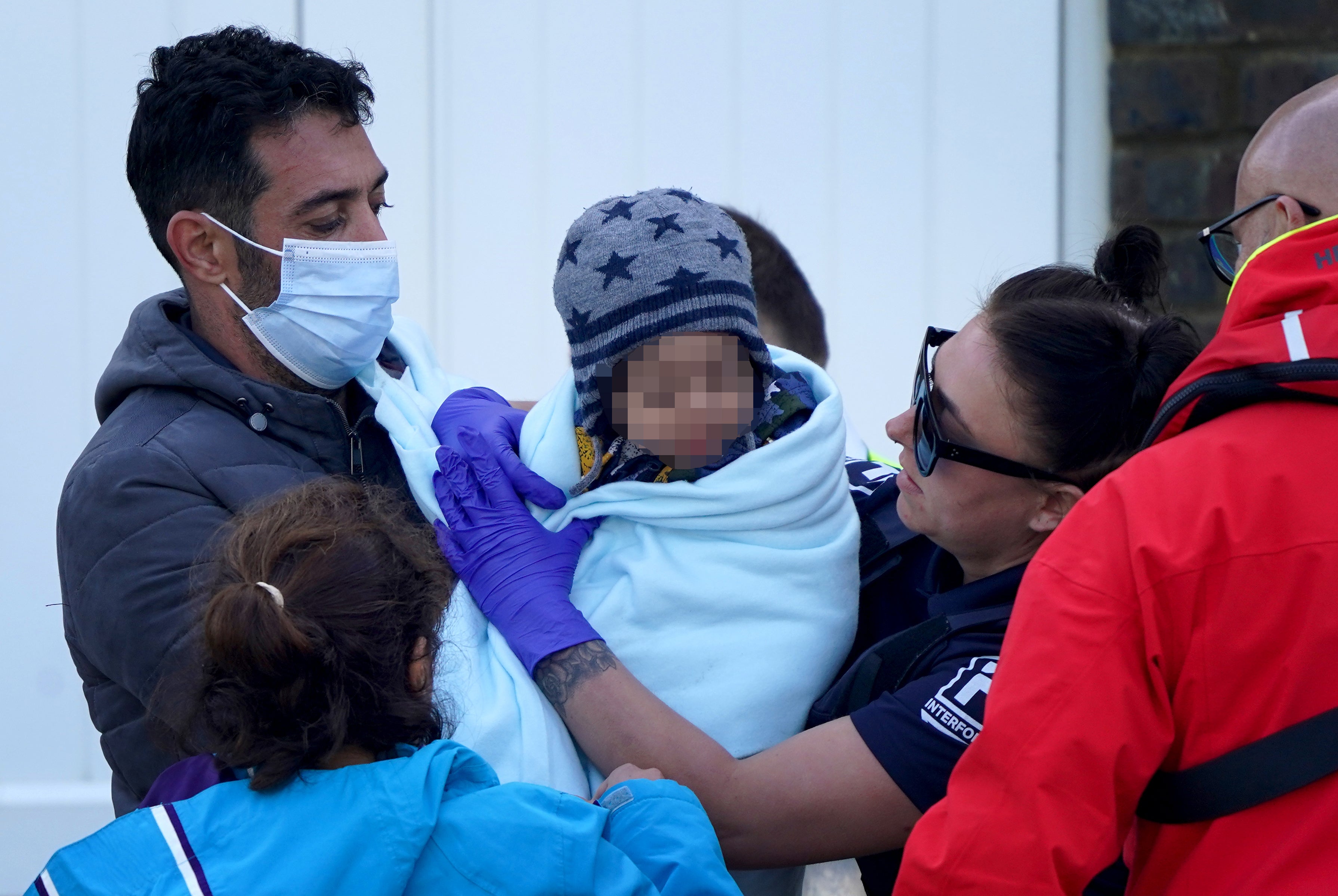Priti Patel insists Rwanda deal will send ‘clear signal’ as Channel crossings hit new record
Home secretary launches fresh attack on lawyers over ‘hurdles’ to removals despite safety warnings

Your support helps us to tell the story
From reproductive rights to climate change to Big Tech, The Independent is on the ground when the story is developing. Whether it's investigating the financials of Elon Musk's pro-Trump PAC or producing our latest documentary, 'The A Word', which shines a light on the American women fighting for reproductive rights, we know how important it is to parse out the facts from the messaging.
At such a critical moment in US history, we need reporters on the ground. Your donation allows us to keep sending journalists to speak to both sides of the story.
The Independent is trusted by Americans across the entire political spectrum. And unlike many other quality news outlets, we choose not to lock Americans out of our reporting and analysis with paywalls. We believe quality journalism should be available to everyone, paid for by those who can afford it.
Your support makes all the difference.The home secretary has insisted the government's plan to send asylum seekers to Rwanda sends a “clear signal” after Channel crossings hit a new record.
Almost 8,000 people have arrived in the UK on small boats from France so far this year, more than triple the figure seen during the same period in 2021.
The Home Office announced that it would inform the first group of migrants of its intent to “relocate them to Rwanda” this week, including some who have crossed the Channel, but that flights were not expected to leave for several months.
Several MPs, including former prime minister Theresa May, have questioned the legality and effectiveness of the proposals.
Speaking during a visit to the Metropolitan Police specialist training centre in Kent on Monday, Priti Patel said the Rwanda agreement would “take time” amid a wave of legal challenges.
She added: “When it comes to the issue of small boats, that is exactly why we changed our laws, that is why we have this partnership with Rwanda, because it's sending out a clear signal that those that come to our country illegally, they will have no right to remain in our country, and we will use every tool and every piece of legislation that we have at our disposal to make sure that we can remove them.”
Crossing the English Channel clandestinely to claim asylum was not an offence until the government changed the legal meaning of “illegal entry” in the new Nationality and Borders Act.
The law, which received royal assent last month, means that refugees can now be criminalised for journeying into British waters regardless of whether their need for protection is legitimate.
Following a series of court cases lost by the government over unlawful conduct relating to asylum and deportation, ministers have launched a series of attacks on lawyers.
In a fresh assault, the home secretary said: “We see various hurdles and barriers, mainly from specialist law firms that want to block the removal of individuals that have no right to be in our country. That is part of the techniques that they use.”
Ms Patel accused law firms of stopping deportations “day in day out”, including of foreign offenders.
“The Nationality and Borders Act will give us greater powers and greater means through the changes in legislation to remove those individuals who have no legal right to be in our country,” she added.
It came days after the prime minister claimed that “liberal lawyers” would attempt to scupper the deal - after Downing Street said flights to Rwanda may not start for months. A legal body warned of “real-life consequences” from repeated government targeting of the legal profession.
A man is to stand trial later this year accused of plotting to kill an immigration solicitor in an attempted terror attack on a London law firm.
The Law Society, which represents solicitors in England and Wales, said they “serve the rule of law and keep the government accountable”.
President Stephanie Boyce said: “Anyone at risk of such a life-changing order has a right to challenge its legality with the assistance of a lawyer, who has a duty to advise their client on their rights.
“It is misleading and dangerous for the prime minister to name-call lawyers who are doing their job and upholding the law.”
The Bar Council, which represents barristers in England and Wales, said the government’s own factsheet on the Rwanda deal said that “everyone considered for relocation will have access to legal advice”.
Chair Mark Fenhalls QC added: “It is unclear who will be making these decisions, or what criteria they will be applying. But, as the government acknowledges, the lawyers who provide legal advice in such cases will be fulfilling their professional duties. Attacks on men and women for simply doing their jobs are irresponsible and undermine the rule of law.”
The UN Refugee Agency has vocally opposed the Rwanda deal, saying it “evades international obligations and is contrary to the letter and spirit of the Refugee Convention”.
Legal action by groups Care4Calais, Detention Action and the PCS civil service union - which represents Border Force and Home Office staff - started last week.
A pre-action letter challenged the Home Office’s failure to disclose the criteria governing which asylum seekers will be sent to Rwanda, and argue the plans are unlawful and contravene the Refugee Convention.
Separately, the charity Freedom From Torture demanded disclosure of underlying policy documents and says it could launch a judicial review claim.
It was seeking information on the policy, risk assessments and documents related to cooperation between the governments of the UK and Rwanda.
Additional reporting by PA



Join our commenting forum
Join thought-provoking conversations, follow other Independent readers and see their replies
Comments